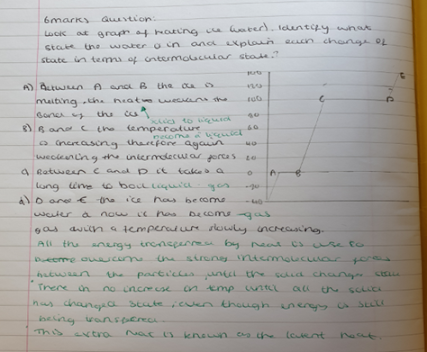The use of effective learning techniques is required in classrooms to improve the educational outcome of pupils. There are various techniques already deployed to enhance pupils learning. Interleaving is one technique that has been shown to considerably enhance long-term memory, the retention of information, leading to improved academic outcome for students. As the name suggests, it involves that mixing of different topics or practice to aid learning. It is believed that interleaving works by leveraging several cognitive mechanisms used by the brain in forming long-term memory.
According
to Abbott, “college pupils who did ‘practice tests’ acquired higher grades in
their exams” (Abbott, 1909). The correct retrieval
of an answer from memory can have a direct effect on the memory, i.e. “Enhances
retention by triggering elaborate retrieval processes” (Carpenter 2009:
768) Moreover, a failure to answer
correctly indicates that a pupil needs to
practice the answers (Dunlosky, 2013: 3).
Roedger and Butler state that “The
retrieval of information from memory
through practice tests produces better
retention than restudying the same information for an equivalent amount of time
and has been termed the ‘testing effect’” (Roediger and Butler, 2011: 20).
Walters & Kandel showed that long-term memories are formed through the repeated
stimulus of an existing pathway in the brain causing additional connections
between brain cells by newly formed proteins (Walters & Kandel,
1982).
In contrast to the current practice of “blocking” adopted by schools, where a single topic or skill is practised at a time before moving on to the next (Dunlosky et al 2013: 40, Tylor & Rohrer, 2010). In my research, the interleaving technique was used, which is based on Eric Kandel’s discoveries from experiments on the neurons of Sea Slugs, and has yielded impressive results. The technique involves mixing or “interleaving” practice sessions covering a number of topics or skills. “Interleaving ensures that practise of any particular skill is distributed or spaced and is not consecutive” (Taylor and Rohrer, 2010). Instead of practice topics following the format “aabbccdd”, a mixed practice format such as “abcdcadbdcba” is followed, e.g., mixed up homework questions on “Food and nutrition”, “Combustion” and “Metals and their uses”. The way long-term memory forms and the success of interleaving have important implications for teaching; research suggests pupils will retain more of what they learn in their long-term memory, improving their success in examinations.
 |
| Who knew research into sea slugs would translate into classroom practice!? |
In my study, I introduced interleaved practice quizzes and 6 mark questions with a high ability year 8 group. The study was carried out in the spring term over 6 weeks, one lesson per week for quizzes from the previous topics.
Another study was completed in the summer term over 6 weeks, one lesson per week for 6-mark questions from the previous topics. While pupils are of high ability with good knowledge of the topics being taught, they tend to score low marks in 6-mark questions at the end of unit tests and exams.
At the end of both trials, the data was collected; a survey was carried out to evaluate the study and techniques used in this experiment.
 |
| 6 mark question sample |
The results showed that interleaving practice had a positive effect on pupils’ learning (as prevous research has suggestd). Student scores showed an improvement in recall and the survey and interviews with puplis showed that 97% of pupils thought the interleaving technique was effective and allowed them to revise topics and remember more information by the time they sat their end of year exams. 77% of the pupils supported using interleaving as an effective technique for revision in the classroom.
Further Research
- The scope of this study was a limiting factor in the evaluation of the results. The time constraint of 12 weeks was short for a study of long-term memory and the sample group was small in size.
- A further difficulty was pupils’ unwillingness to do practice tests within the required time frame which was integral to the study. Limited time also meant the resource could only be tried on one group of high ability.
Recommendations
It is clear that interleaving can have an impact on the longer term memory and recall of students. Interleaving, coupled with retrieval practice, should inform the sequencing of curriculum and schems of learning.
Further Reading

No comments:
Post a Comment